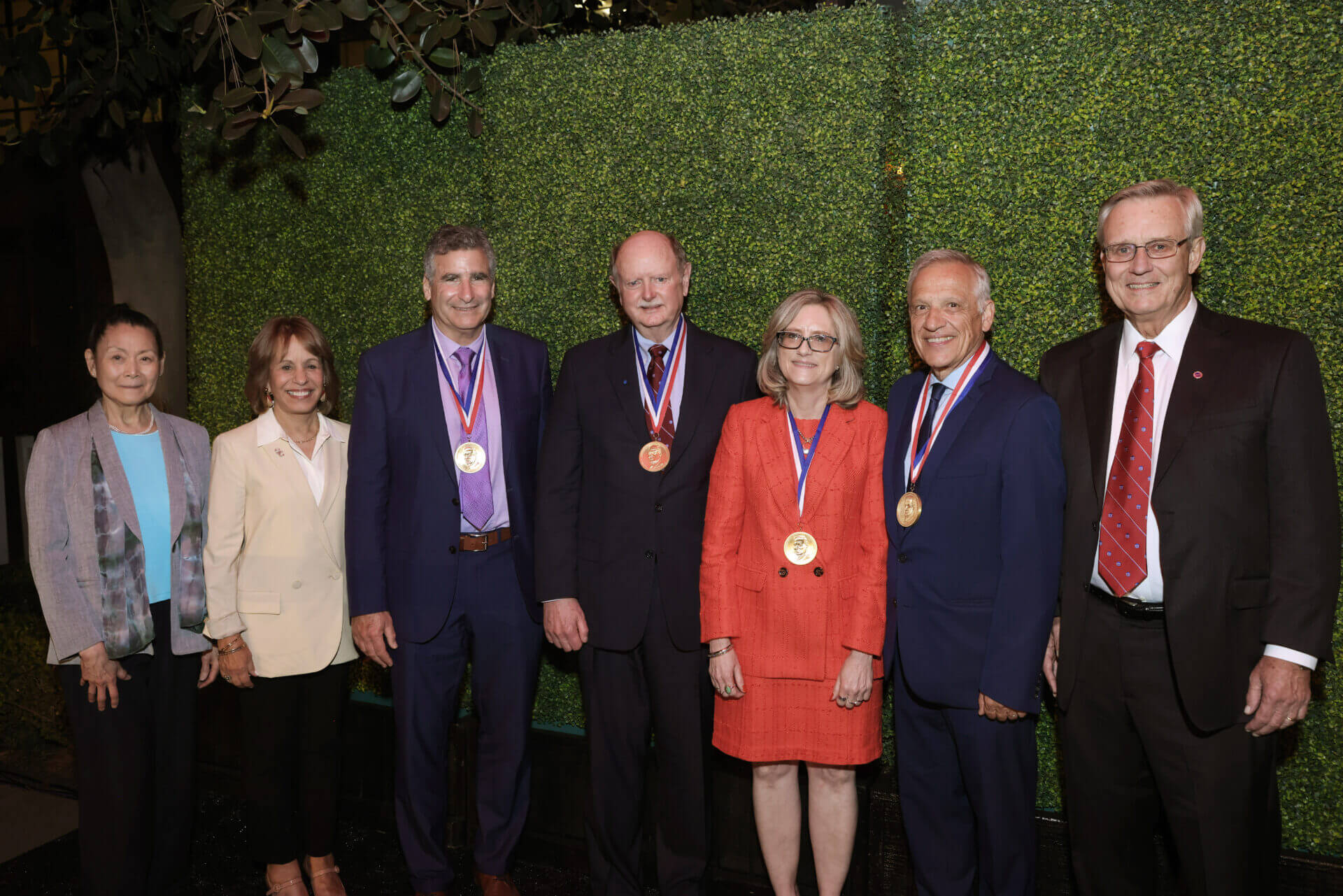Dean Yortsos Receives Prestigious Gordon Prize of the National Academy of Engineering
Fourteen years ago, Yannis C. Yortsos, dean of the USC Viterbi School of Engineering, helped launched a movement in engineering education.
That movement, the Grand Challenge Scholars Program, or GCSP, has played a key role in reimagining engineers in the 21st century. To date, the program has been adopted by more than 100 engineering schools and produced nearly 2,000 engineers uniquely equipped to tackle humanity’s most pressing problems.
In May, Yortsos received the National Academy of Engineering’s 2022 Bernard M. Gordon Prize for Innovation in Engineering and Technology Education, along with his GCSP co-founders, Jenna P. Carpenter, Thomas C. Katsouleas and Richard K. Miller. Yortsos is the first USC faculty member to receive the accolade.
Awarded annually, the Gordon Prize recognizes academic leaders in engineering for the development of innovative approaches to education. In its citation, NAE stated the recipients were chosen for “creating an innovative education program that prepares students to become future engineering leaders who will address the NAE Grand Challenges of Engineering.”
The Gordon Prize carries a $500,000 cash award, to be given to the GCSP and shared among the four recipients.
Origins of the Grand Challenges Scholars Program
In 2009, Yortsos, Katsouleas, then dean of engineering at Duke University, and Miller, former president of Olin College, proposed the creation of the GCSP to help prepare engineers to solve the Grand Challenges that NAE had enunciated the previous year. Both Katsouleas and Miller served as associate deans at USC Viterbi early in their careers, and for several years Carpenter, founding dean of the Engineering School at Campbell University in North Carolina, advised colleges interested in joining the GCSP. Katsouleas is now an engineering professor at the University of Connecticut, as well as its former president. Miller is president emeritus at Olin.
At the heart of program is the development and adoption of a personalized co-curriculum experience based on NAE’s 14 Grand Challenges for Engineering. These include securing cyberspace, advancing personalized learning, reverse-engineering the brain, engineering better medicines, advancing health informatics, providing access to clean water, making solar energy economical, managing the nitrogen cycle and engineering the tools for scientific discovery.
The GCSP also encourages the development of five mindsets among participating undergraduate engineering students, namely undergraduate research, interdisciplinary collaboration, innovation and entrepreneurship, cultural and global understanding, and societal impact and relevance.
“The Grand Challenges Scholars Program essentially redefines engineering education and the engineer of today, because it helps students understand that they have the ability to solve Grand Challenge-like problems in multiple areas,” Yortsos said.
USC President Carol Folt, who attended last year’s Gordon Prize ceremony, spoke about the necessity of encouraging students to tackle grand challenges.
“Universities have a duty to prepare our future leaders and shape our global citizens,” she said. “Because of this program, students at institutions like Duke, Olin, Campbell, [Arizona State University] and USC can reimagine what’s possible
for our planet and society.”




